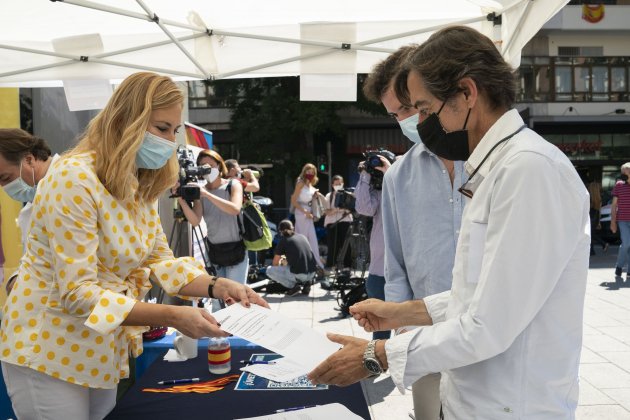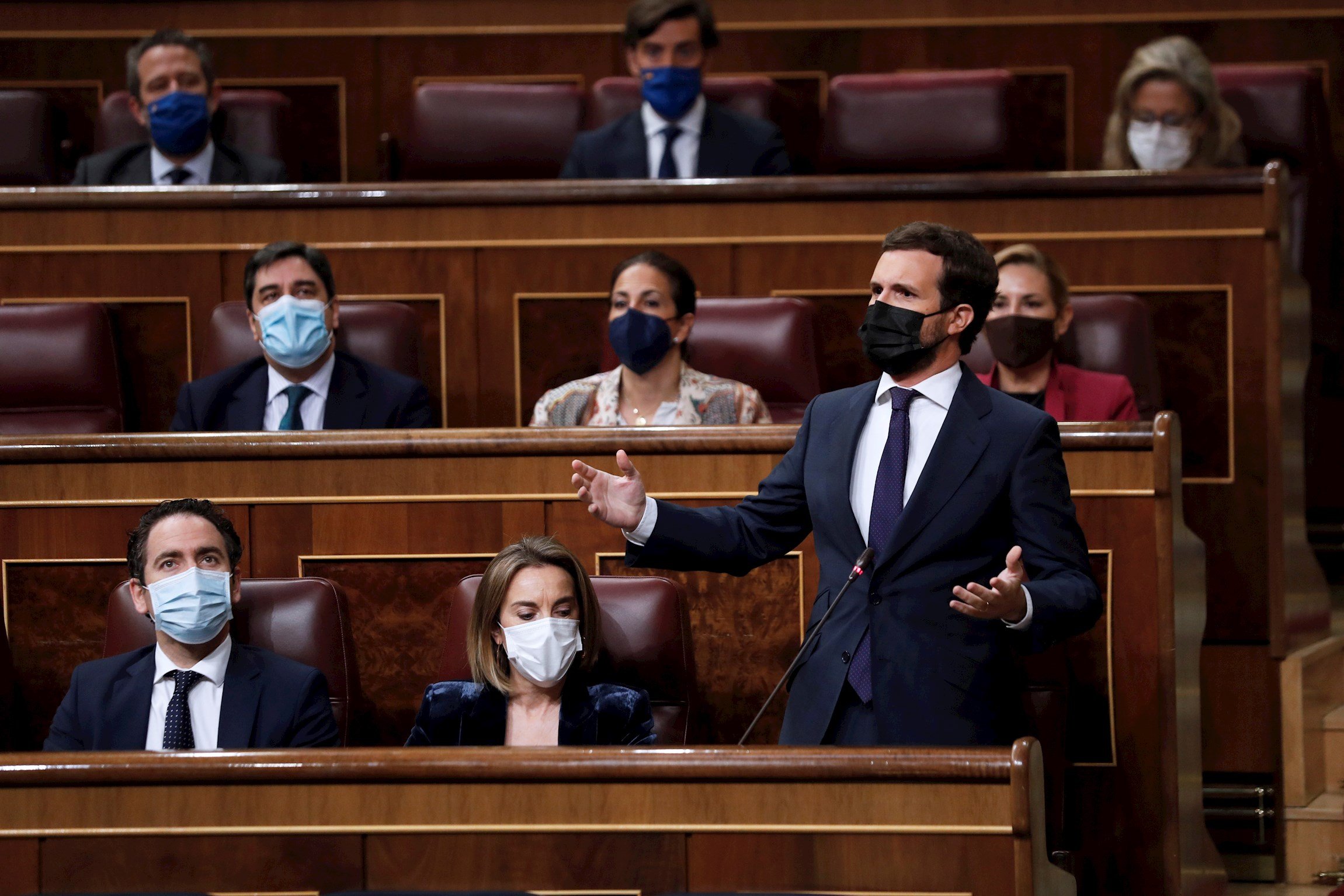The Popular Party (PP) has collected fewer signatures in ten days against the pardons for the Catalan pro-independence prisoners than it did in three days in 2006 against Catalonia’s Statute of Autonomy. The Spanish right-wing party announced at the end of May that it would repeat the strategy which it used 15 years ago to mobilize opposition to an issue affecting Catalonia, but this time, the party has collected nearly 47,000 signatures via the Internet, in addition to another 50,000 collected in person via petition tables in towns across the Spanish state except in Catalonia, where none have been set up.
According to the ACN news agency, the figure is lower than the PP achieved in 2006 against the Statute of Autonomy, when Catalonia sought to revise its autonomous powers under the established constitutional machinery. At that time, the conservative party collected 140,000 signatures in the first three days of the campaign exclusively through its website and without even having sought signatures on the street. It was January 30th, 2006. The next day, in Cádiz, Mariano Rajoy began the face-to-face campaign to ask people to sign, and according to him he already had 242,000 signatures. Three months later he presented four million signatures against Catalonia’s reform proposal to the Spanish Congress.
In total, say the PP, there are 100,000 signatures that have been collected since June 1st when they unfolded the first petition table in front of the party headquarters in Madrid, announcing a major campaign to keep the Catalan independence leaders in prison. The same day they activated their petition through the Change.org platform, and the next day, June 2nd, PP tables sprang up across the state.
Protest plus petitions, this Sunday
In fact, this Sunday, the PP will set up tables to collect signatures against pardoning the Catalan leaders in Constitutional Squares of major cities throughout Spain to reach more people. Naturally, it will also be possible at the Sunday midday protest called in Plaza de Colón in Madrid, where speakers will urge those present to sign.

Image: PP supporters collecting signatures against the Catalan pardons / ACN
Casado urges Sánchez to sign
This Friday, PP leader Pablo Casado signed the petition through Change.org and on social media called on others to do the same.
"Never again pardons for political reasons, nor interference of the executive branch in the judiciary, without a request from the court that issued the sentence," he proclaimed.
The conservative leader affirmed that "for political dignity", prime minister Pedro Sánchez should himself sign against these "pardons for sedition". In addition, Casado, turning to the news archives, shared a 2014 video of the Spanish PM in which, in the midst of the Socialist Party's primary process, he was quick to defend putting a stop to pardons for political and economic reasons.
After the 2006 PP petition campaign, Catalonia's Statute of Autonomy - which had been passed by an overwhelming majority in the Catalan Parliament - faced heavy opposition from both the PP and the PSOE in the Spanish Congress and underwent major amendments. The PP then went further and appealed it to the Constitutional Court, which took four years to deliver a decision which further gutted its content on language, identity and financing, among other areas. The 2010 court decision preceded big rises in Catalans' support for independence from Spain.
Main image: Popular Party leader Pablo Casado / EFE

